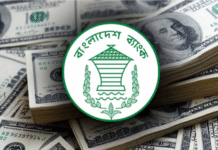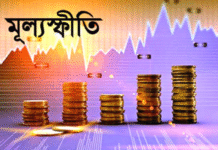The trend of rising sales of savings certificate might become a burden for the government, unless invested in productive sectors, analysts say.
The government’s saving-schemes sale touched Tk 75 billion during the nine months of the 2013-14 fiscal as of Thursday (May 8), according to Bangladesh Bank’s latest figures. It’s ten times the sale during the entire 2012-13 fiscal.
Savings certificates are now being prioritised by investors as the banks have cut interest on deposits, according to economist Zaid Bakht.
“The government has adopted an expansionary economic approach and that’s why the rise in saving certificate sales is being viewed as a normal thing (by them),” he told bdnews24.com.
The Research Director of Bangladesh Institute of Development Studies (BIDS) says this will create a burden on the government’s borrowings.
“The interest rate of saving certificates is high. Some of the saving schemes give almost 13 percent interests.
“But if this money goes to a productive sector then the investment will rise, leaving a positive impact on the economy. The GPD growth will increase,” he said.
Saving schemes are increasingly getting popular due to the sluggish stock market for quite some time now, says Faruque Ahmad Siddique, a former chairman of the Bangladesh Securities and Exchange Commission (BSEC).
“After the 2010 stock market crash, everyone now is opting for saving certificates seeing it as a risk-free and safe investment…people are now buying saving certificates expecting a better return,” the former chief of the capital market regulator told bdnews24.com.
Saving certificates sales are on the rise over the last few months. On Mar, 2013, it stood at Tk 12.15 billion, slightly lower than Tk 12.62 billion in Feb.
The budget for 2013-14 has earmarked Tk 49.71 billion for borrowing from sale of savings certificates to bridge the deficit while sales in the first three quarters touched at Tk 75 billion, which Zaid Bakht says kept a leash on the government borrowings.
According to figures by the Directorate of National Savings (DNS), net sales of saving certificates was Tk 115.90 billion in 2009-10 fiscal , which came down to Tk 20.57 billion in the next fiscal and further slumped to Tk 4.69 billion in 2011-12.
The net sales are calculated by deducting the liquidated amount of previously sold certificates from the total sales of saving certificates at a given time.
Savings certificates holders get the original amount and the accumulated interest over it during liquidation.
The DNS issues six types of saving certificates. The top selling scheme is the Family Savings Certificate accounting for 80 percent of the total sales followed by Pensioners’ Savings Certificates with 15 percent and the rest comprised of the other schemes.
Among the DNS’s savings schemes, the Family Savings Certificate offers the highest interest rate at about 13 percent. On the other hand the bank’s interest on deposit now stands below 10 percent.
The Family Savings Certificate, applicable only for female investors, was introduced during the 1996-2001 term of the Awami League but in the subsequent regime of the BNP-Jamaat alliance, the DNS stopped offering it.
It was re-introduced during the last regime of the Awami League.
Source: bdnews24










